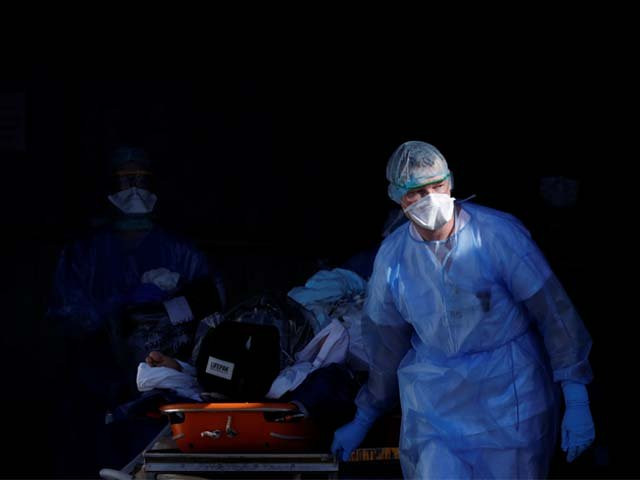Coronavirus is a silent demon hunting down not only the physical well-being of healthcare workers but also their mental health. The pandemic is drastically impacting the work load of those in the medical field and simultaneously leading to a spectrum of adverse psychological effects on several medical personnel working in a clinical setting. Members of the healthcare workforce are our first and last line of defence against this pandemic, and it is just as important to account for their psychological well-being as it is to ensure that they are provided with medical equipment and the necessary protective gear.
In this regard, we can learn many lessons from past outbreaks where the medical workforce was put under a similar strain, such as the SARS and MERS outbreaks. Reflecting back on these epidemics, the doctors were under heightened stress due to a lack of personal protective gear and high death rates. They also feared transmitting the superbugs to their family members, especially those who had pre-existing medical conditions. The long work hours, coupled with watching the gradual decline and death of several patients also lowered the morale of the medical workforce.
Clinically, the factors leading to an adverse psychological impact on healthcare professionals include increased contact with affected cases, a lack of proper personal protective equipment (PPE) due to financial constraints, and forced redeployment to attend to affected patients. There is often a higher risk among nurses and junior doctors due to a lack or inadequacy of training and expertise required to deal with infected cases, alongside the multiple duty shifts they are required to do. Prolonged quarantine durations and an inability to interact freely with family members also takes its toll on medical personnel. Living away from their homes or in quarantine units, social pressure from family members in combined family setups, lower personal income, and co-morbid physical health conditions are all factors which can grow to become a burden over a prolonged period of time.
Furthermore, a prevailing history of psychological distress, mental health disorders, alleged lack of organisational support, absence of adequate training, lack of infection control, and low monetary compensation can lead to further psychological deterioration and, in some cases, the development of suicidal tendencies.
Hence, it is imperative that we focus on possible measures which can be undertaken to reduce the increased psychological distress. Frequent short breaks from exhausting clinical duties, guidance provided by senior doctors and experts with greater work experience, working in an administrative role, faith in the precautionary measures, and supportive peers can all help ease the mounting stress. In particular, a supportive family set-up can prove to be crucial in providing momentary respite to the medical workforce.
Although psychological distress is inevitable in such a situation where personnel must attend to a large inflow of patients, medical organisations can help to tackle this distress by removing several operational interventions. For example, it should be the prime responsibility of the administrative authorities to ensure that the staff receive constant feedback, the infection control procedures in place are reliable, there is a provision of protective gear, the staff has been trained to handle the situation, there is no lapse in communication, standard operating procedures (SOPs) for dealing with the outbreak are being followed, and that these SOPs are continually being reviewed. Ideally, medical institutes should also try to provide their staff access to psychological interventions based on individual needs.
Support must also be provided in terms of recognition of staff efforts, training to identify and respond to psychological problems, encouraging self-quarantine for community cases, easy access to psychological interventions, appropriate work timing shifts, and regular breaks. In an effort to address this area, the World Health Organisation (WHO) has published guidelines which specifically focus on mental health during this pandemic and include measures such as cognitive behavioural therapy, proper sleep, a structured routine, rearrangement of wards so that there is exposure to sunlight, etc. Psychological first aid includes the valuation of needs and concerns, provision of practical care and support, and the addressing of basic social needs. Lastly, it is also important that media portrayals of healthcare workers do not attach any stigma to the profession during these trying times. We must be thoughtful and considerate about the toll Covid-19 is taking on medical personnel across the globe and should try to raise the morale of our healthcare workers who are battling on the front lines.
The toll Covid-19 is taking on the mental health of medical personnel
Medical institutes should ideally try to provide staff access to psychological interventions based on individual needs

A coronavirus patient being carried on a stretcher. PHOTO: REUTERS


COMMENTS
Comments are moderated and generally will be posted if they are on-topic and not abusive.
For more information, please see our Comments FAQ